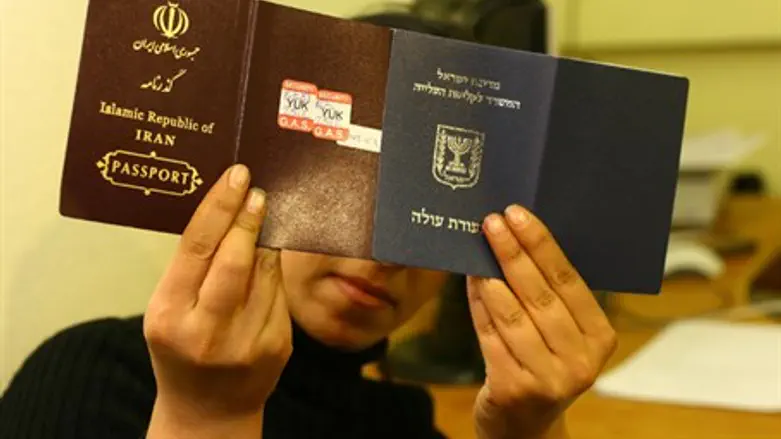
While the Iranian Jewish community remaining in Iran is small, it still thrives - for now.
Larry Cohler-Esses, the assistant managing editor of the Daily Forward and the first reporter from a Jewish outlet to visit Iran in years, spoke about his experiences seeing Iranian Jewry firsthand in a special interview on Monday.
"It is much smaller than the community that existed before Khomeini came to power and the shah was overthrown," Cohler-Esses told CNN's Fareed Zakaria. "There is [sic] estimates, depending on who you talk to, between 9,000 and 20,000 Jews there. Before the revolution in 1979, there were 80,000 to 100,000."
"So it's clear that life is possible there - but many Jews have chosen to make their lives elsewhere since the revolution took place.”
Iranian Jewish life is "rich," he noted, with a 100-bed Jewish hospital, 13 active synagogues, five Jewish schools, and two kindergartens.
But the Iranian Jews who remain face limitations, he said.
“They're not miserable," he insisted. "But they have discriminations [sic]."
"One of the leaders who I quoted in my story said, we're not oppressed, but there are limitations. And that's true and it has many specific multiple meanings," he explained. "If a Muslim murders a Jew - price is blood money. That's the penalty. But - if a Jew murders a Muslim, the price is execution."
"They were very proud because they are pushing back against these limitations in their own way," he added. "But they do not challenge in any way the legitimacy of Sharia [Law - Islamic law - ed.] that gives them many disadvantages."
Cohler-Esses added, as well, his own estimation that Tehran keeps a Jewish community for political or other reasons.
“It may be a political asset for them to have a community of Jews, even though a shrinking one, that they can point to and say, look, these are our Jews in our country and we're not doing anything to them, while maintaining a position toward Israel which, of necessity, would involve a military war that would kill many people, including many civilians, in order to get rid of the very idea of a Jewish state," he postulated.